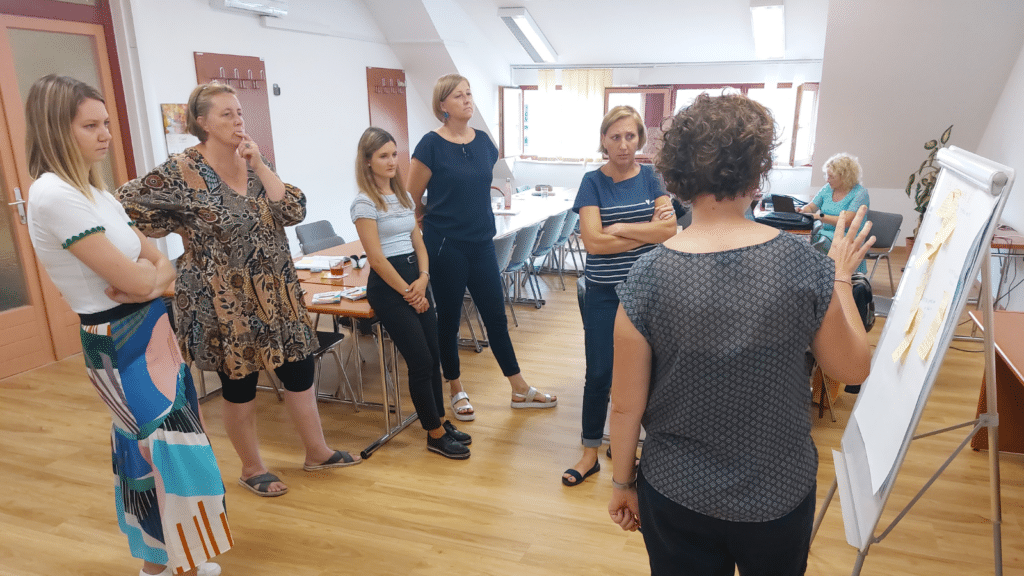
Supporting and training the workforce at local level is central to ensuring social services are responsive to and can address the unique needs of people in the community. This Award honours social services organisations that have positively impacted their workforce and empowered neighbourhood networks to support the provision of community-centred care.
Supporting Family Caregivers: Taking Care of Those Who Care
Organisation: ATS Bergamo – Health Protection Agency, Department of Planning for the Integration of Health and Social Services
Country: Italy
Website: https://caregiverbergamo.it/
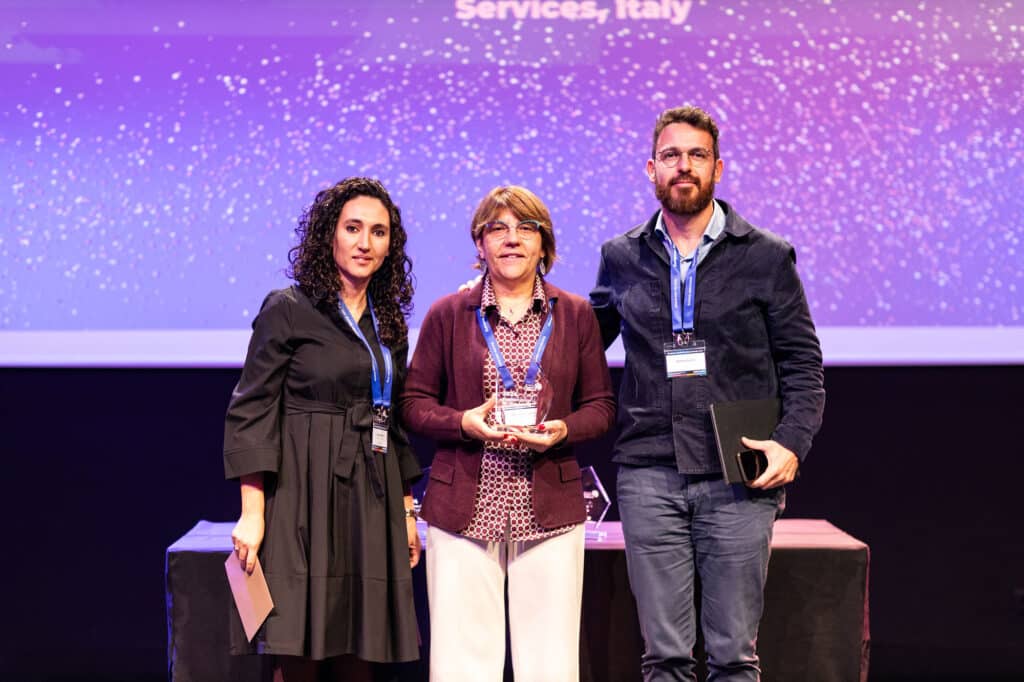
In Bergamo, 14 territorial teams of social workers and healthcare professionals provide integrated care, ensuring informal caregivers’ needs are addressed. By promoting social inclusion and co-designing care strategies with the caregivers, the project creates a more resilient and inclusive care system. In this context, the project ‘Supporting Family Caregivers: Taking Care of Those Who CarIne’ aims to empower family caregivers who provide long-term, unpaid care to loved ones with chronic illnesses or disabilities. Key initiatives include offering practical support through an online portal, psychological support programmes, and action research on young caregivers. The project fosters collaboration between public institutions, municipalities, and NGOs, creating a cohesive support network.
NTRIS Employment Support Scheme
Organisation: Child and Family Agency (TUSLA)
Country: Ireland
Website:https://www.tusla.ie/
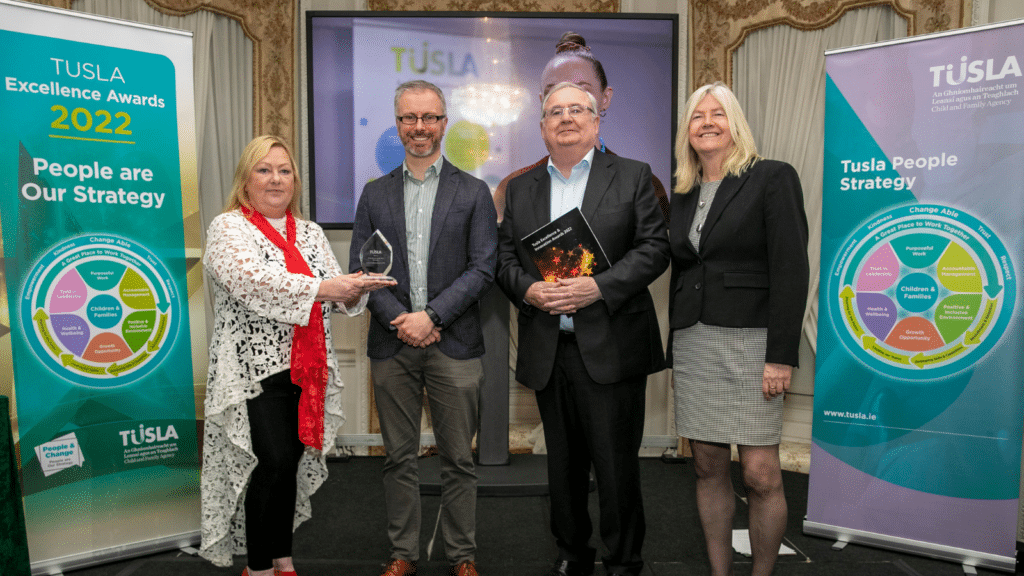
Travellers and Roma have much poorer educational outcomes than the general population, with lower participation and completion rates at all levels. A consequence is high unemployment rates, with the unemployment rate for Travellers aged 15-65 years at 61% and 83.3% for Roma. The TUSLA NTRIS Employment Support Scheme provides valuable work experience in TUSLA for social work and social care students from these communities while completing their third-level courses, empowering them to finish their studies and become professionally qualified. Additionally, a promised guaranteed employment contract on completion of their studies is hugely reassuring for students, boosting graduation rates in two of the most disadvantaged, socially excluded and racially discriminated against ethnic communities in Ireland. Five of the 15 students on the scheme are now working with TUSLA, and the remaining students are continuing their education.
De-escalation and Conflict Management
Name of Organisation: Special Area for Children and Youth in Denmark, Regional Government of Central Denmark
Country: Denmark
Website: https://www.rm.dk/
The Special Area for Children and Youth manages seven homes and cares for children and young people who need specialised care. Caring for young children and youth is a mentally demanding job, and many employees become sick with stress and PTSD due to the challenging nature of their work. Consequently, the quality of their work decreases, and conflicts arise. Knowledge about de-escalation and conflict management is thus essential to employees’ well-being and their ability to create an inclusive environment for the development of children and young people. The project provides this through training with consultants who have expertise in caregiving practice, psychology, acting, management, and learning processes. It promotes inclusion by shifting responsibility from individuals to the community, creating a common professional language, and facilitating knowledge sharing. Project evaluation shows a 25% reduction in restraint incidents, as caregivers successfully apply the learning from their training.
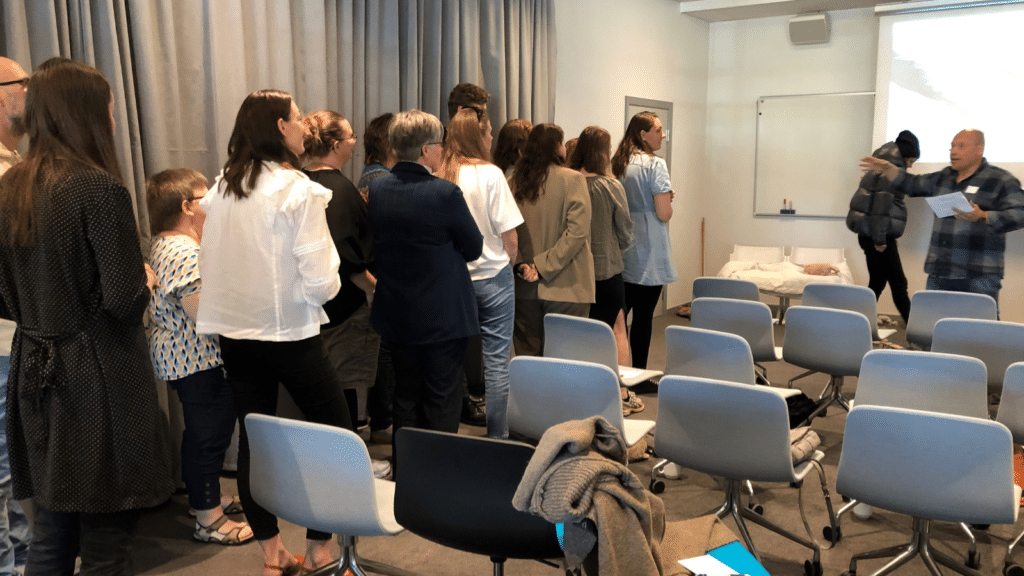
Social Care Workforce Reform in Northern Ireland
Organisation: Northern Ireland Social Care Council (SCC)
Country: Northern Ireland
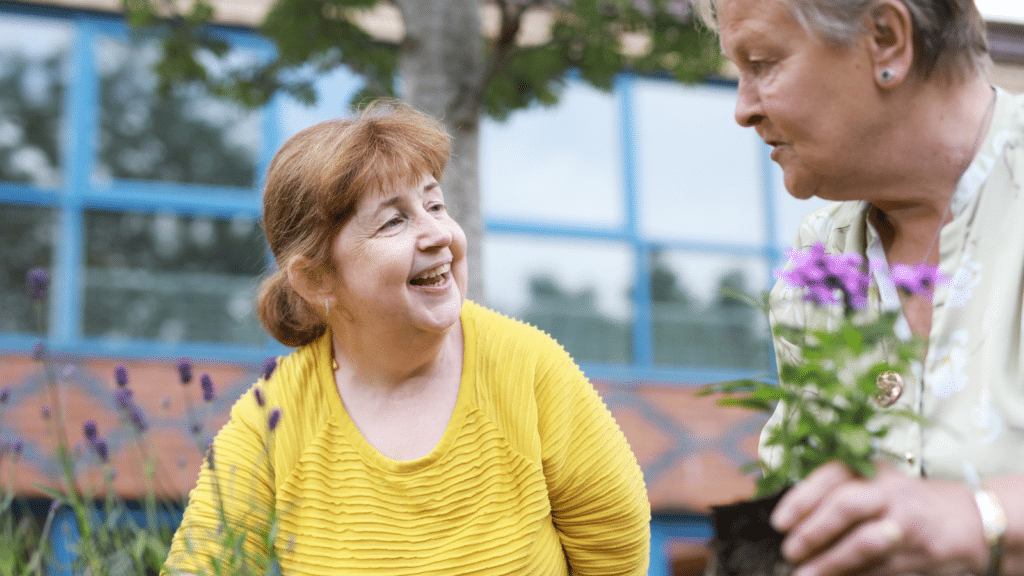
The Health and Social Care system in Northern Ireland and the role of the social care workforce within it is complex. Many social care workers cannot follow a straightforward career path, as there is no entrance-level qualification or continuous professional learning and development framework. This project aims to develop a career pathway framework for the social care workforce and a continuous professional learning and development programme aligned with the Northern Ireland Social Care Council (SCC) registration requirements. For this, the Care in Practice (CiP) Framework was created, including an entrance-level qualification for those employed in social care and registered with the SCC. Additionally, it enables a resilient workforce that is constantly evolving to meet the needs of people using social services and to provide effective personalised care, creating an inclusive society.
Training Formal and Informal Long-Term Caregivers
Organisation: Centre of Competences of Active Ageing
Country: Portugal
Website: https://cceativo.pt/
The Active Aging Competence Center (CCEA), set up in 2023 and headquartered in Loulé, Algarve, has centres in all 18 districts of Portugal. The CCEA works to address the demographic challenge of an ageing population by providing free training for caregivers, aiming to improve the quality of care. The CCEA trains caregivers for multidisciplinary care, namely in health, education, communication, psychology and social care. It also provides training for informal caregivers who play a crucial role in caring for thousands of older people every day. The project ensures that caregivers are well-trained to meet the diverse needs of older people, enhancing their quality of life and fostering active participation in the community. More than 4,000 caregivers have been in training since the beginning of 2024, and more than 90% of them indicate that the training has positively impacted their ability to provide care.
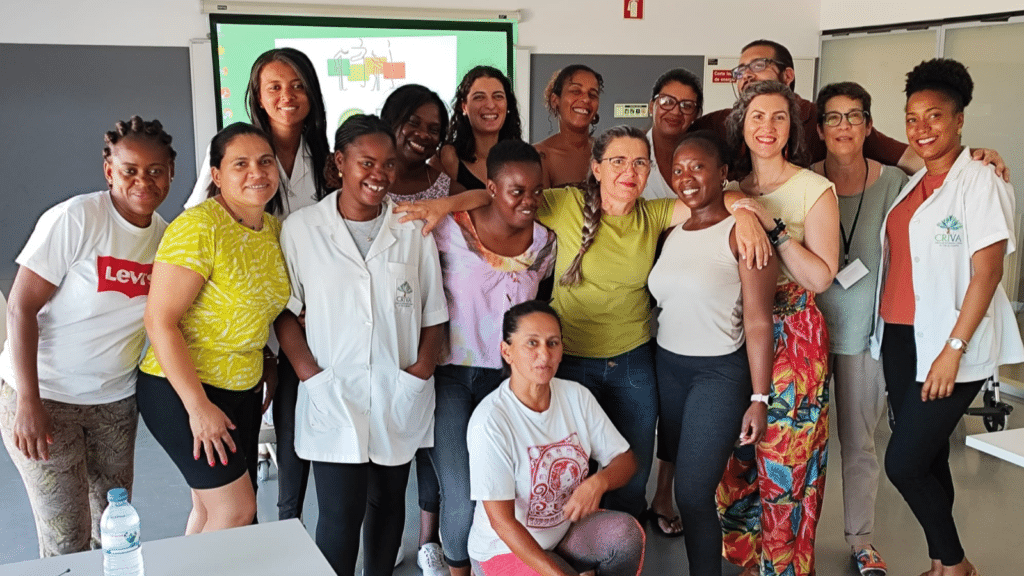
HeatSafe: Empowering Social Care for Heatwave Preparedness
Organisation: Social Care Standards Authority (SCSA)
Country: Malta

During the summer of 2023, Malta experienced record-breaking high temperatures, leading to one of the highest death rates across the European Union. To minimise heat-related deaths, the Social Care Standards Authority is working to provide guidance and support to service providers to prepare their premises and their operations to respond effectively to heatwaves. A Heat Preparedness Checklist was drawn up, and visits were carried out to all licenced services to check if service premises and staff were adequately prepared to operate. Providers are additionally encouraged to involve service users in heat preparedness as long as they have the cognitive capacity. In this way, service users are empowered to take on active responsibility for keeping themselves safe. As of June 2024, 140 visits were conducted to assess service providers’ heatwave preparedness. The average score on the checklist was 94.8%. This project promotes social inclusion by ensuring service users can live safely within their community, reducing the likelihood of hospital admissions or other adverse incidents due to high temperatures.
Making Interaction Meaningful: Communicating Effectively in Children’s Services
Organisation: Health Information and Quality Authority (HIQA) & Child and Family Agency (Tusla)
Country: Ireland
The Health Information and Quality Authority (HIQA) and Child and Family Agency (Tusla) developed the ‘Fundamentals of Good Communication: How to Have Effective Everyday Conversations’ toolkit to address challenges in children’s social services. It helps staff focus on meaningful communication with children, families, foster carers, and colleagues, ensuring they feel involved and in control of decisions. The toolkit promotes key communication principles, encourages reflective practice, and offers cues for thoughtful interactions. Supporting over 5,000 Tusla employees, particularly front-line workers, it addresses the growing number of child referrals, which exceeded 80,000 in 2022, improving service delivery and outcomes for children and families. Feedback indicated that the toolkit is particularly useful in helping staff prepare for difficult meetings with children, young people, families and foster carers.
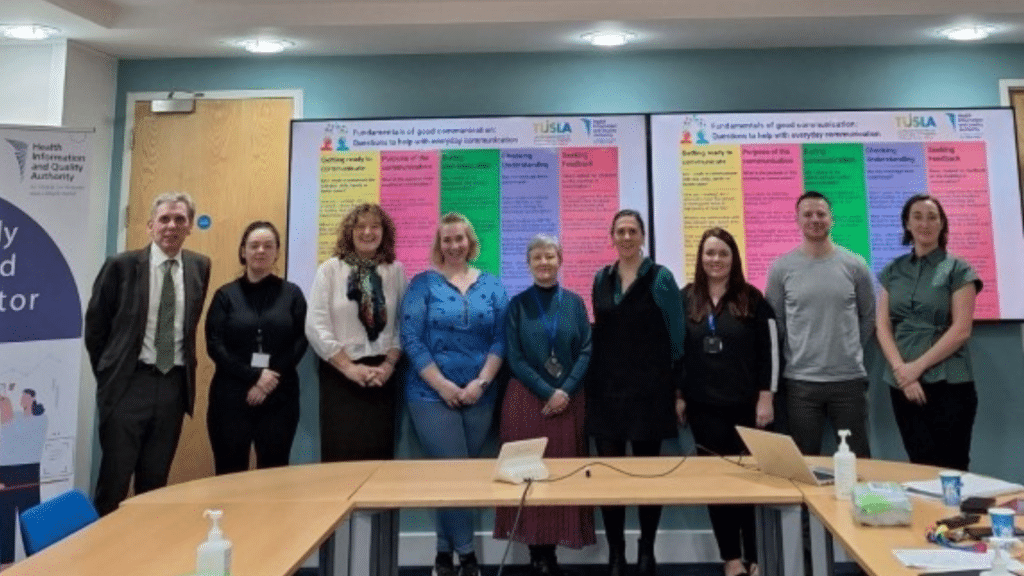
Challenges of Families and Social Work: With Polyphonic Community to Desired Outcomes
Organisation: Faculty of Social Work, University of Ljubljana
Country: Slovenia
Website: https://linklearning.online/unit/3
The Slovenian Learning & Innovation Lab, part of the Erasmus+ funded LINK – Learning and Innovation Network, aims to enhance health and social care services by equipping frontline staff with new skills to overcome challenges and provide more person-centred care. The Lab focuses on developing innovative practices to deliver high-quality, integrated support through co-creation and collaboration by addressing the needs of frontline staff and responding to the issues of families facing multiple challenges, involving them as key experts by experience. To date, 20 professionals have been directly involved in the development of Lab activities to promote interdisciplinary collaboration to improve family support, with the key partners in the development of the LAB being the social workers of the Social Work Centre Spodnje Podravje. An important objective was to strengthen the competences of frontline workers, by learning to include the families’ perspective. One of the project activities therefore included 16 in-depth interviews with families about their experiences of collaborating with Social Work Centre, a meeting with families to reflect on the findings and an invitation for further active participation in the Lab.
